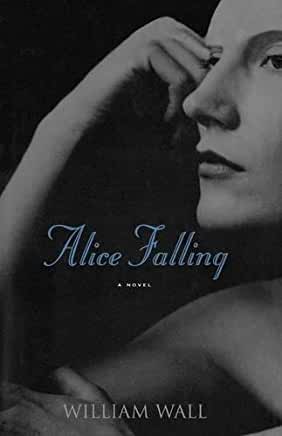
Alice Falling
Click on the image to visit the publisher’s website or buy the book.
William Wall is an Irish poet whose first novel is lyrical in the best way: It’s evocative and open-ended; it creates intense atmosphere with a light touch; and it’s laser-like in its dissection of human frailties. It can also be almost unbearably brutal in its portrayal of two couples who have reached the Sargasso Sea of middle age, where conflicting currents of power, pain and the past stifle all hope and threaten to take down the friends and lovers who flounder around them. Alice is the long-suffering wife of Paddy Lynch, a take-no-prisoners type who owns a software firm called, tellingly enough, Micro Solutions: “His belief was in binary codes, the esoteric world of noughts and ones where every choice is simple and every event is a switch that is either on or off.” Their best friends are Mick Delany, a former champion hurler who’s now an insurance man, and his wife, Nora, a former free spirit who’s now drowning in anti-depressants and who might be secretly in love with Paddy. While Alice–whose not-so-buried memories of abuse at the hands of a parish priest form the book’s roiling core–steals off with a Kierkegaard-obsessed undergraduate, Wall allows us to realize that Paddy is more than just a soulless jerk: He’s conducting a vicious and violent affair of his own. As the betrayals mount, Alice too becomes increasingly dangerous (as only a trapped creature can be), making “Alice Falling,” in the end, an exceedingly bitter pill–sleek, unsugared and determined to devastate.